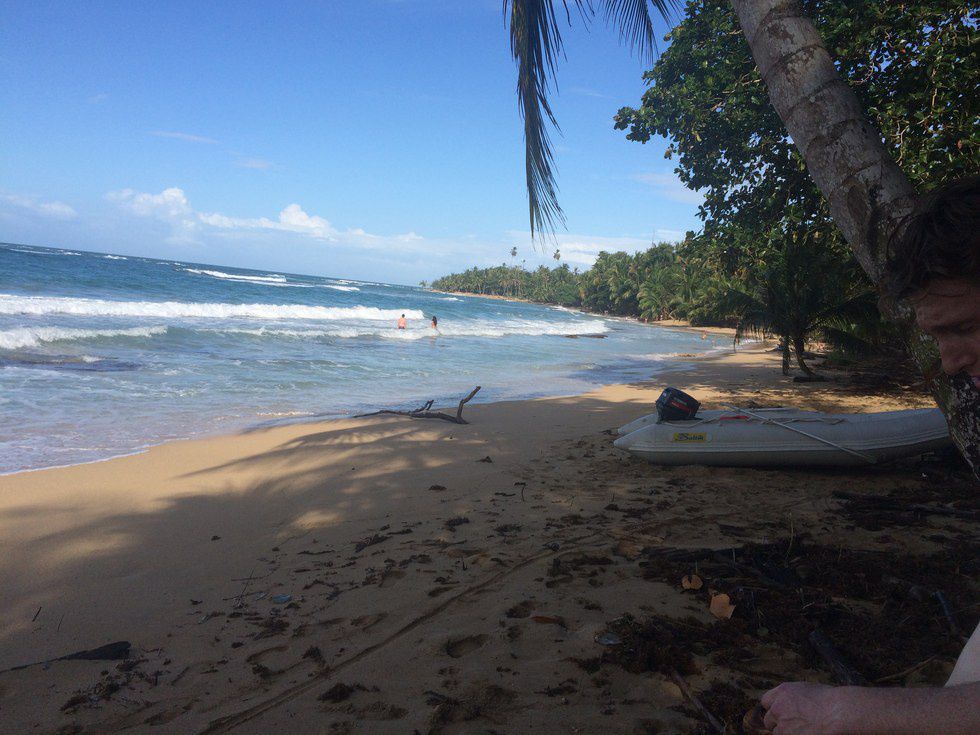There is a reason you probably know if one of your college peers did study abroad: because they’ve probably told you about it. My name is Alex and I am one of these annoying people. In the spring of 2015 I studied abroad in Costa Rica for three months, and after I returned I found myself feeling the need to bring it up to everyone. “When I was in Costa Rica…” was how I started about 70% of my sentences for the subsequent year after I returned to The States.
When you are preparing for your trip abroad, people will warn you about culture shock. Everyone experiences it to some degree, but you are extremely prepared for it. Culture shock was explained to me in following four distinct steps.
- Honey Moon Period. This period is pretty self-explanatory. It is when everything in the foreign country is new and exciting, and you are happy and eager to experience everything.
- Rejection Period. This is when the reality that you have no idea what the fuck you are doing sets in. You don’t know the language. You don’t know a soul. You are mad that the new country is different than your home, and you don’t know how to reconcile these emotions.
- Regression and Isolation Period. This period is a direct result of the rejection period, and differs depending on the person and his/her experiences. It is a reaction to humans’ avoidance of humiliation and discomfort that comes with cultural and lingual unfamiliarity.
- Adjustment and Adaptation. This is when you finally start to become comfortable in your new home, and often when you start to become more fluent in the foreign language.
While I was abroad, I experienced these stages somewhat, but to be honest I never experienced the rejection or regression periods very much. I had a great host family. Learning Spanish was difficult, but I felt prepared and eager to take on the challenge.
What no one tells you about studying abroad though, is that reverse culture shock is a very real thing. It can be as bad, if not worse, than culture shock. It is dealing with the fact that although you return from your trip a completely changed person with new experiences and perspectives, you find that your home and the people in it have remained the same. After you’ve already adjusted and become comfortable in a foreign country, returning to your native one can provide an equally profound culture shock. For me it certainly did.
What no one tells you about study abroad is that the return home can often feel empty. For three months I spent every day adventuring, trying new things, and becoming enriched with a new way of life. I tried so many new foods. I met new people. I learned a new language. I traveled across the country and back week after week, rafting down rapid rivers and jumping off rocky cliffs. I zip lined through a cloud forest, went to a music festival on a whim, and soaked in geothermal hot springs under the shadow of a volcano.
It was as an incredible time as it sounds. But after months of nonstop action and rapid personal growth, returning home felt stagnant. I returned to the same routine I had before. I stayed still, no more constant traveling (and no more beautiful tropical beaches.) It was like my life had turned stale back in The States.
The period of regression and isolation, that I never experienced while studying abroad, hit me hard after I had returned. I couldn’t figure out why I felt so unhappy living the same life I had enjoyed before I went to Costa Rica. I often stayed awake at night scrolling through pictures from my travels, longing hopelessly to be sleeping in a hammock in a hostel on the beach.
Now, over a year after I have returned from Costa Rica, I can say I have finally reached the adjustment and adaptation period of reverse culture shock. The only thing that really helped was time. There are no strategies that help. Reminiscing only makes things worse. Trying to find the same foods you ate will be disappointing, and connecting with travel friends never feels the same.
What no one tells you about study abroad is that the worst part of the experience will be when it is over. So this is me telling you to be prepared for it. Study abroad is ABSOLUTELY worth it; however, you should know that the challenges it will force you to face will be the some of the most difficult, yet worthwhile ones you ever overcome.













 The minimum wage is not a living wage.
StableDiffusion
The minimum wage is not a living wage.
StableDiffusion
 influential nations
StableDiffusion
influential nations
StableDiffusion












